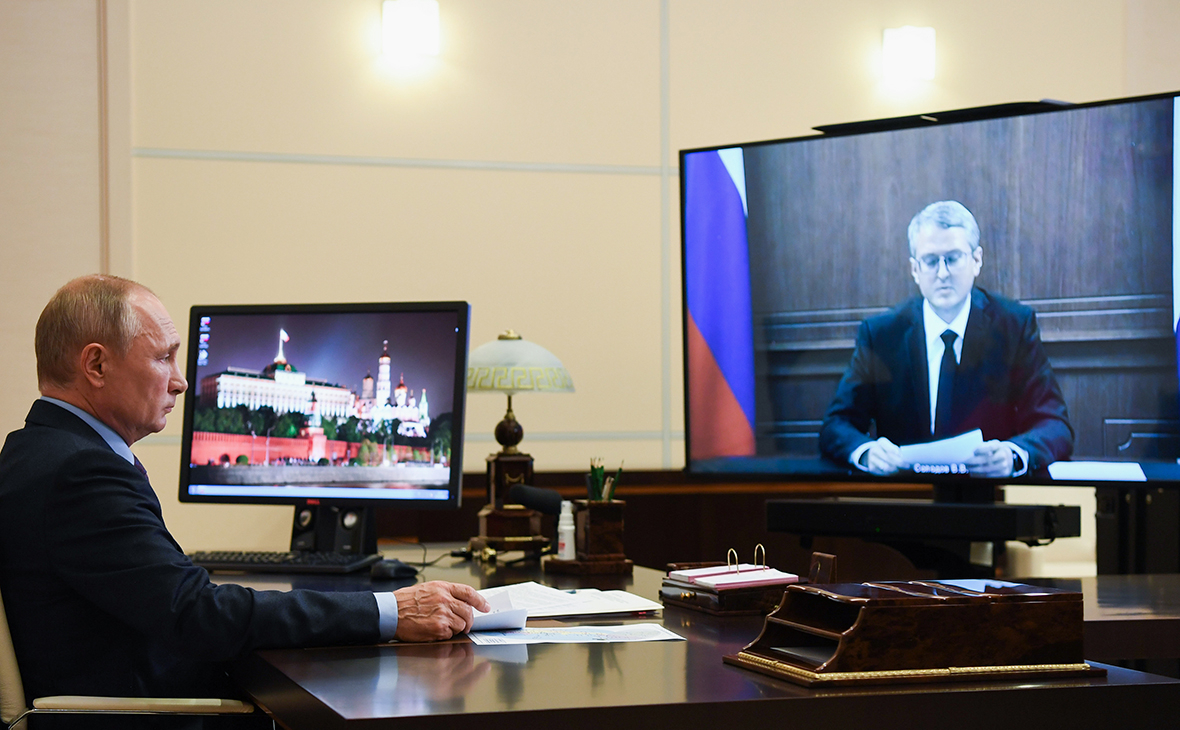RA’s Daily Russia News Blast – August 12, 2020

Today in Russia: Russia says reporting on its new vaccine is “information warfare”; Six months into pandemic and Russian stats “still provide more questions than answers”; Third night of unrest in Belarus, experts in Russia and Belarus weigh in; Kazakhstan resumes flights with Russia; Putin not happy with high prices in Kamchatka, blames “monopolists”; Big list of former US officials say now is not the time for Russia reset; US GOP senators up the ante on Nord Stream 2, Germany less than pleased
Russia is not happy with the skepticism afforded to its new vaccine. So unhappy, in fact, that the head of the country’s sovereign wealth fund says Russia is a victim of “information warfare” by the US. Russian Health Minister Mikhail Murashko added that [in Russian] “Foreign colleagues, apparently feeling certain competitive advantages of the Russian drug, are trying to express some opinions, which, in our opinion, are absolutely baseless.”
Six months into the pandemic, Russia’s COVID-19 statistics still provide more questions than answers, the Moscow Times wrote:
The death toll from the coronavirus across many Russian regions could be many times higher than official statistics show, analysis of new data by The Moscow Times suggests.Experts pointed to systemic underreporting of deaths, and highlighted a complex incentive structure and political relationship between the Kremlin and Russia’s governors in the regions.
Figures published by Rosstat [in Russian] showed that in May and June Russia recorded three times more excess fatalities than could be accounted for by official COVID-19 death numbers, and in many regions, “the discrepancy is far wider.”
A third night of unrest in Belarus is under way, with the use of firearms reported and continued aggressive tactics by the police who detained over a thousand people. Russia’s state-run TASS, for its part, headlined with an article emphasizing that the protests were “unauthorized rallies,” in yet another sign that the official Russian line in Belarus has not wavered much despite Lukashenko’s viscous criticism of Russia during the election campaign.
RBC spoke to experts [in Russian] about what will come of Belarus’ continuing unrest. All noted that the protests are the largest in Belarus’ post-Soviet history, but “the overwhelming majority of experts believe that the days of the protest are numbered. The resource of the protesters is running out, the rallies are declining and will probably end soon.” Perhaps more interesting is what will come of Lukashenko’s inner circle. Yevgeny Minchenko, an analyst and consultant noted that the protests could divide the elite in Belarus, noting that “the opposition will manage to split the Belarusian elite and remove Lukashenko from power. The opposition can impose a protracted struggle, in which the West will agree to recognize the opposition leader Tikhanovskaya as the elected president. ‘The probability of these two scenarios in general is about 40%,’ Minchenko concluded.“
Kazakhstan will resume flights [in Russian] with Russia as well as with six other countries: Belarus, Ukraine, Germany, the Netherlands, the United Arab Emirates (UAE) and Egypt.
President Vladmir Putin is pleased with the relatively high average income on Russia’s remote Kamchatka peninsula, but is less pleased [in Russian] that this increase in income is largely mooted by the high cost of goods there. Putin declared in a video meeting with the Acting Governor of the Kamchatka Territory Vladimir Solodov that this is the fault of “monopolies” driving up prices.
A long list of former US officials across government and the military wrote in Politico that “now is not the time” for a “reset” in relations with Russia – a response to a previous open letter in Politico by a group advocating for a shift in US policy towards Russia.
The authors of the rebuttal wrote, “The authors and signers of the open letter calling for a ‘rethink’ of America’s Russia policy that was published in Politico Magazine on August 5 include people we know, like and respect. We agree that U.S.-Russia relations are in a poor state. But we disagree strongly about the reasons why and what should be done in response. Our colleagues’ arguments require forceful response.“
The August 5 letter argued that sanctions and pressure have not worked, and called for a new approach: “U.S.-Russia relations are at a dangerous dead end that threatens the U.S. national interest. The risk of a military confrontation that could go nuclear is again real. We are drifting toward a fraught nuclear arms race, with our foreign-policy arsenal reduced mainly to reactions, sanctions, public shaming and congressional resolutions. The global Covid-19 pandemic and the resulting serious worldwide economic decline, rather than fostering cooperation, have only reinforced the current downward trajectory.“
US Republican Senators Ted Cruz, Tom Cotton, and Ron Johnson threatened the Mukran Port in Germany with sanctions over its role in helping Russian vessels work on the Nord Stream 2 pipeline in a letter which suggested “crushing legal and economic sanctions” against the port if it did not cease cooperation. Needless to say, these threats have not gone down well in Berlin.
PHOTO: Vladimir Putin held a video meeting with the Acting Governor of Kamchatka Vladimir Solodov (Alexey Nikolsky / TASS).











